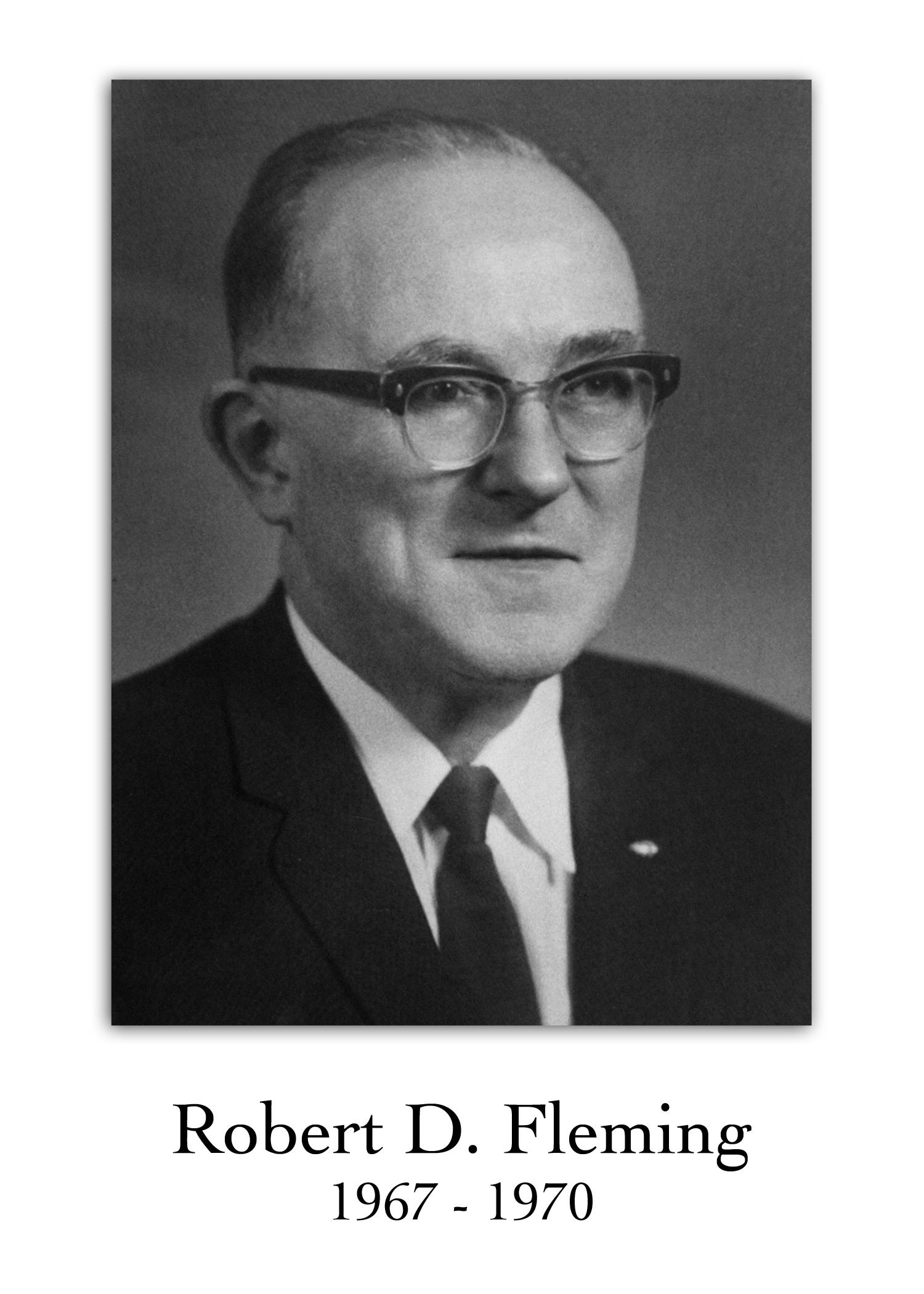Member Biography
Robert Doty Fleming

COUNTIES: Allegheny
Biography
Robert Doty Fleming (R40) Allegheny (Part) County 1951-1974
Early Life:
Robert Doty Fleming, born March 8, 1903, Sharpsburg, Allegheny County, Pennsylvania; son of Robert H. and Daisy Doty Fleming; Aspinwall High School; University of Pittsburgh, B.S., 1931; insurance salesman; realtor; elected, justice of the peace, 1933-1939; president, Young Republicans, Aspinwall, 1936-1937; elected, Republican, Pennsylvania House of Representatives, 1939-1950, not a candidate for reelection, 1950; elected, Republican, Pennsylvania State Senate, 1951-1974; Republican caucus chair 1959-1962, Senate President pro tempore, 1966-1970, Republican Leader, 1971-1972, unsuccessful campaign for reelection, State Senate, 1974; delegate, Republican National Convention, 1960; delegate, Pennsylvania Constitutional Convention, 1967-1968; married, D. Jean Varner; died, August 15, 1994, Oakmont, Allegheny County, Pennsylvania; interment, Allegheny Cemetery, Pittsburgh, Allegheny County, Pennsylvania.
Professional titles; business ownership; board memberships; local government; club memberships:
Member, Freemasons; Benevolent and Protective Order of Elks; Moose; Kiwanis; Kappa Sigma; Alpha Kappa Psi.
Pennsylvania Politics:
Elected, justice of the peace, 1933-1939; president, Young Republicans, Aspinwall, 1936-1937.
Elected, Republican, Pennsylvania House of Representatives, 1939-1950; appointed, Joint State Government Commission, 1945-1948, Sub-Committee on Strip Mining, 1945-1946: Sub-Committee on Finance Companies, 1945-1946: chair, Sub-Committee on Industrial Development, 1947-1948, not a candidate for reelection, 1950.
Elected, Republican, Pennsylvania State Senate, 1951-1974; Republican caucus chair, 1959-1962, elected, Senate President pro tempore, 1966-1970, Republican Leader, 1971-1972; member, Pennsylvania Commission on Constitutional Revision, 1959; appointed, Commission on Interstate Cooperation, 1959-1964; appointed, Legislative Budget and Finance Committee, 1961-1974; chairman, Legislative Budget and Finance Committee, 1961-1970; appointed, General State Authority, 1967-1968; appointed, Joint State Government Commission, 1967-1974; appointed, Pennsylvania Transportation Assistance Authority, 1968; appointed, Pennsylvania Higher Educational Facilities Authority, 1967-1968; appointed, State Highway and Bridge Authority, 1967-1968; appointed, State Public School Building Authority, 1967-1968; unsuccessful campaign for reelection, State Senate, 1974.
Delegate, Republican National Convention, 1960.
Delegate, Pennsylvania Constitutional Convention, 1967-1968.
Pennsylvania House of Representatives Biography:
Official Website - PA House Archives Official Website (state.pa.us)
Legacy:
Legendary Pennsylvania State Senator Clarence Bell, referred to him as “the Father of the Senate.”
Cited:
Cox, Harold. . "Senate Members F". Wilkes University Election Statistics Project. Wilkes University.
Robert D Fleming (unknown-1994) - Find a Grave Memorial